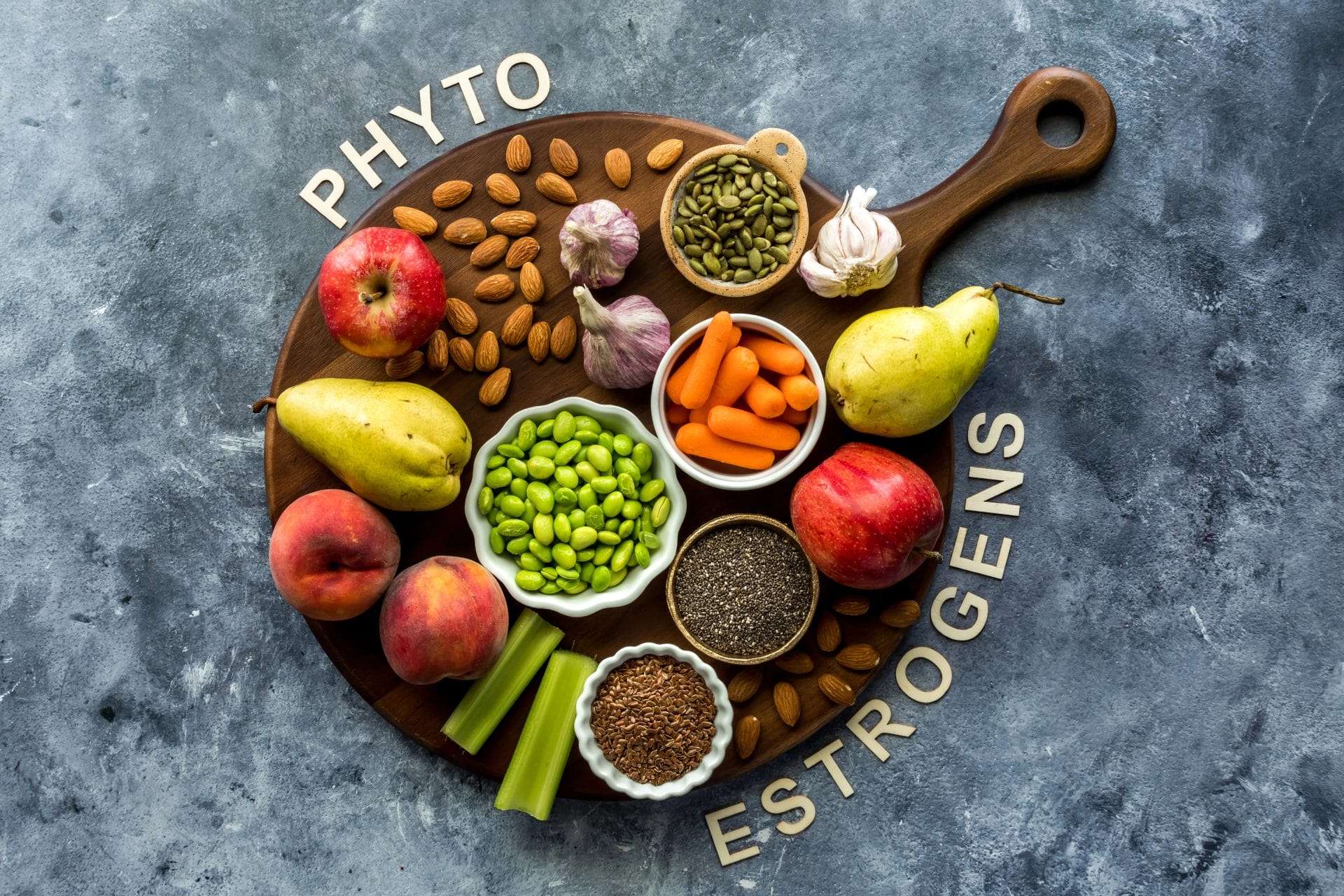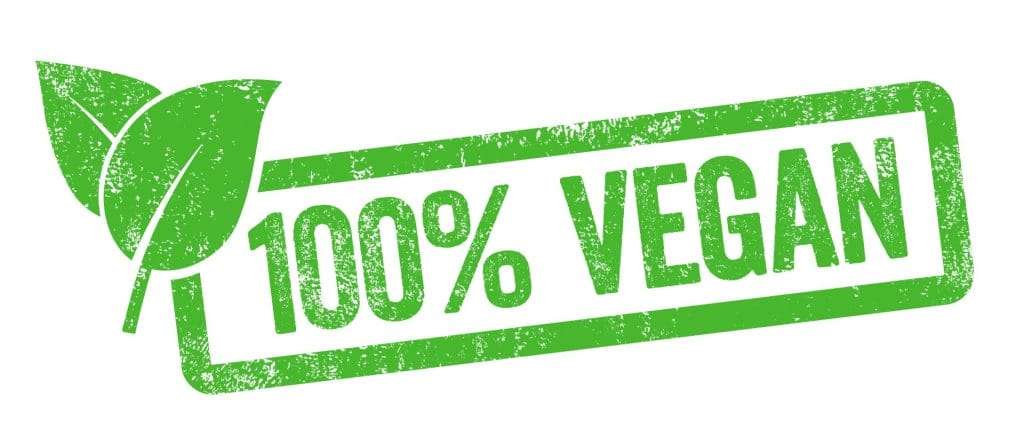Following a vegan lifestyle offers numerous health benefits, from improved heart health to enhanced environmental sustainability. However, maintaining optimal nutrition on a plant-based diet requires careful attention to certain nutrients that may be less abundant in vegan foods. This comprehensive guide explores everything you need to know about vegan multivitamins, helping you make informed decisions about your nutritional supplementation needs.

Understanding Vegan Nutrition Challenges
The Plant-Based Nutrition Landscape
Vegan diets eliminate all animal products, including meat, dairy, eggs, and honey. While plant-based eating patterns are associated with reduced risks of chronic diseases, certain nutrients require special attention to prevent deficiencies. The most critical nutrients for vegans include vitamin B12, iron, zinc, omega-3 fatty acids, vitamin D, and calcium.
Research indicates that well-planned vegan diets can be nutritionally adequate for all life stages, but strategic supplementation often becomes necessary to bridge potential gaps¹. The challenge lies not just in obtaining these nutrients, but in ensuring they’re in bioavailable forms that your body can effectively utilize.
Common Nutritional Gaps in Vegan Diets
Vitamin B12 Deficiency: Perhaps the most well-documented concern for vegans, vitamin B12 is primarily found in animal products. Deficiency can lead to megaloblastic anemia, neurological problems, and elevated homocysteine levels².
Iron Absorption Issues: While plants contain iron, it’s in the non-heme form, which is less readily absorbed than heme iron from animal sources. Vegans need to consume nearly twice as much iron as omnivores³.
Omega-3 Fatty Acids: EPA and DHA, the long-chain omega-3s crucial for brain and heart health, are primarily found in fish. Plant sources provide ALA, which converts to EPA and DHA at very low rates⁴.
What Makes a Multivitamin “Vegan”?
Ingredient Sourcing and Manufacturing
Vegan multivitamins differ from conventional supplements in several important ways. First, all ingredients must be plant-derived or synthetic, avoiding animal-sourced components like gelatin capsules, lanolin-derived vitamin D3, or fish oil. Instead, vegan formulations use plant-based alternatives such as cellulose capsules and algae-derived omega-3s.
Manufacturing processes also matter significantly. Vegan supplements must be produced in facilities that prevent cross-contamination with animal products. Many manufacturers seek third-party vegan certifications to ensure their products meet strict plant-based standards.
Key Certification Standards
Look for multivitamins certified by recognized organizations like the Vegan Society, Certified Vegan, or similar bodies. These certifications guarantee that products contain no animal ingredients and weren’t tested on animals during development.
Essential Nutrients in Vegan Multivitamins
Vitamin B12: The Non-Negotiable Nutrient
Vitamin B12 stands as the most critical supplement for vegans. This nutrient supports nerve function, DNA synthesis, and red blood cell formation. Vegan multivitamins typically contain cyanocobalamin or methylcobalamin forms, with doses ranging from 25-250 micrograms⁵.
The recommended daily intake for adults is 2.4 micrograms, but many experts suggest higher supplemental doses due to absorption limitations. Some individuals may require even higher amounts based on genetic factors affecting B12 metabolism.
Iron: Optimizing Absorption
Quality vegan multivitamins include iron in forms that enhance absorption, such as iron bisglycinate or ferrous fumarate. These formulations often pair iron with vitamin C, which significantly improves non-heme iron absorption⁶. The recommended dietary allowance for iron is 18mg for women and 8mg for men, though vegans may need 1.8 times these amounts.
Vitamin D: Beyond Sunshine
Most vegan multivitamins contain vitamin D2 (ergocalciferol) derived from yeast or mushrooms, though some premium formulations now include vegan D3 from lichen. Vitamin D supports bone health, immune function, and mood regulation⁷. Winter months and limited sun exposure make supplementation particularly important for vegans.
Zinc: Supporting Immune Function
Zinc absorption can be impaired by phytates in plant foods, making supplementation valuable for vegans. Look for chelated forms like zinc picolinate or zinc bisglycinate, which offer superior bioavailability compared to zinc oxide⁸.
Omega-3 Fatty Acids: Plant-Based Brain Food
Advanced vegan multivitamins increasingly include algae-derived EPA and DHA omega-3s. These provide the same beneficial fatty acids found in fish oil without the environmental concerns or fishy aftertaste⁹.
Glam Dust
Radiant Skin – Luscious Hair – Pristine Nails
Vitamin Shots
The ultimate brain and body supplements
Vitamin Sprinkles
The ultimate brain and body supplements
Enhanced Energy and Vitality
Many users report improved energy levels after starting vegan multivitamin supplementation, likely due to correcting subclinical deficiencies in B vitamins, iron, and other energy-supporting nutrients¹⁰.
Immune System Support
The combination of vitamin C, vitamin D, zinc, and other immune-supporting nutrients in vegan multivitamins can help maintain optimal immune function, particularly important during seasonal changes or periods of stress.
Convenience and Compliance
Taking a single comprehensive supplement is more convenient than managing multiple individual supplements, leading to better long-term compliance with supplementation regimens.
Choosing the Right Vegan Multivitamin
Reading Labels Like a Pro
When selecting a vegan multivitamin, examine the supplement facts panel carefully. Look for adequate amounts of the nutrients most commonly lacking in vegan diets. Pay attention to the forms of nutrients used, as some are more bioavailable than others.
Avoid products with unnecessary fillers, artificial colors, or excessive amounts of nutrients that can interfere with absorption of others. The best vegan multivitamins balance comprehensive nutrition with optimal bioavailability.
Third-Party Testing and Quality Assurance
Choose products that undergo third-party testing for purity and potency. Organizations like NSF International, USP, or ConsumerLab.com provide independent verification of supplement quality. This testing ensures you’re getting what the label promises without harmful contaminants¹¹.
Dosage and Timing Considerations
Most vegan multivitamins are designed for once-daily dosing, though some higher-potency formulations may require twice-daily dosing for optimal absorption. Take multivitamins with food to enhance absorption and reduce the risk of stomach upset.
Fat-soluble vitamins (A, D, E, K) absorb better when taken with meals containing healthy fats, while water-soluble vitamins (B-complex, C) can be taken anytime but are often better tolerated with food.
Special Considerations for Different Life Stages
Vegan Multivitamins for Pregnancy and Breastfeeding
Pregnant and breastfeeding vegans have increased nutritional needs, particularly for folate, iron, calcium, and DHA omega-3s. Specialized prenatal vegan multivitamins address these heightened requirements while ensuring all ingredients remain plant-based¹².
Children and Adolescents
Growing children following vegan diets need careful nutritional monitoring. Pediatric vegan multivitamins provide age-appropriate nutrient levels in forms that support healthy growth and development.
Seniors on Plant-Based Diets
Older adults may have decreased absorption of certain nutrients, making supplementation even more critical. Senior-specific vegan multivitamins often contain higher levels of vitamin B12, vitamin D, and calcium to support aging bodies.
Comprehensive Vegan Nutrition: Selenium and Algae-Based Supplements
The modern landscape of vegan multivitamins has evolved significantly, with selenium playing a crucial role in supporting immune system function and protecting against oxidative stress in those following a plant-based diet. Many of the best vegan multivitamins now incorporate selenium from plant sources, recognizing that this essential mineral can be challenging to obtain in adequate amounts from plant foods alone. Algae-derived nutrients have revolutionized vegan supplements, particularly in providing EPA and DHA omega-3 fatty acids that were previously found primarily in fish, making these vital nutrients accessible to vegetarian and plant-based communities without compromising their ethical values.
Premium whole food multivitamin formulations often feature algae as a sustainable source of multiple nutrients, including vitamin D and essential omega 3 fatty acids that support brain function and cardiovascular health. The best vegan multivitamin products typically combine selenium with other key nutrients like methylcobalamin, folate, and bioavailable forms of B vitamins to address common nutritional gaps in plant based diets. Companies like Garden of Life have pioneered whole food approaches to supplementation, creating multivitamin tablets that are rich in iron, magnesium, and vitamin E while remaining completely vegan friendly and developed using plant-derived ingredients.
The Vegan Society has been instrumental in establishing standards for nutritional supplements, including their development of VEG 1, a chewable multivitamin developed specifically to meet the needs of those following plant-based lifestyles. This multivitamin developed by the Vegan Society addresses critical concerns about getting enough vitamins and minerals, particularly focusing on nutrients like folic acid, riboflavin, and important vitamins and minerals that may be less abundant in plant sources. Modern vegan multivitamins contain carefully selected forms of nutrients, such as the bioavailable form of vitamin E and methylcobalamin rather than synthetic alternatives, ensuring optimal absorption and utilization by the body.
Selenium supplementation has become increasingly important for vegans, as this mineral supports immune function and acts as a powerful antioxidant, while also playing a role in thyroid health and life extension research. The integration of algae-based nutrients into liquid multivitamin and chewable formulations has addressed long-standing concerns about obtaining adequate EPA from plant-based sources, with many products now offering comprehensive omega-3 profiles that rival traditional fish-based supplements. Advanced formulations recognize that multivitamins can help bridge nutritional gaps while avoiding the risks associated with taking too much of any single nutrient, carefully balancing essential nutrients like iron supplement levels to prevent much iron intake while ensuring adequate mineral support.
The source of vitamin compounds in vegan multivitamins has shifted toward more sustainable and ethical options, with nuts and seeds, along with algae cultivation, providing alternatives to animal-derived ingredients while maintaining nutritional efficacy. Women’s daily multivitamin needs are particularly well-addressed by modern plant-derived formulations that provide adequate folate for reproductive health, while VEG 1 baby formulations ensure that even the youngest members of vegan families receive appropriate nutritional support. The evolution of multivitamins available on the market now includes innovative delivery methods, from traditional tablet per day formats to liquid multivitamin options that enhance absorption, with each multivitamin coming with detailed guidance on optimal timing and dosage to maximize the form of vitamin absorption.
Contemporary vegan collagen alternatives and comprehensive dietary supplement approaches recognize that a multivitamin without proper attention to bioavailability and nutrient synergy may not provide optimal benefits, leading manufacturers to focus on whole food sources and scientifically backed formulations. The understanding that vitamin D contributes to immune function, bone health, and overall wellness has led to improved formulations that combine this vitamin with nutrients rich in vitamin C and other antioxidants to create synergistic effects. Plant-based diet followers can now access nutritional supplements that are made from whole foods and provide comprehensive coverage of essential nutrients without the ethical concerns associated with animal-derived ingredients, ensuring that multivitamins may serve as effective tools for optimizing health while maintaining alignment with personal values and environmental consciousness.
Glam Dust
Radiant Skin – Luscious Hair – Pristine Nails
Vitamin Shots
The ultimate brain and body supplements
Vitamin Sprinkles
The ultimate brain and body supplements
Potential Side Effects and Interactions
Common Side Effects
Most people tolerate vegan multivitamins well, but some may experience mild side effects such as nausea, stomach upset, or constipation, particularly when starting supplementation. Taking multivitamins with food usually minimizes these effects.

Medication Interactions
Certain nutrients in multivitamins can interact with medications. Iron can interfere with thyroid hormone absorption, while vitamin K can affect blood-thinning medications. Always consult healthcare providers before starting new supplements, especially if you take prescription medications¹³.
Over-Supplementation Risks
While deficiencies are concerning, over-supplementation can also cause problems. Fat-soluble vitamins can accumulate in the body, potentially reaching toxic levels. Choose multivitamins with reasonable dosages rather than mega-dose formulations.
The Science Behind Vegan Supplementation
Research on Plant-Based Nutrition
Scientific literature increasingly supports the health benefits of well-planned vegan diets, with studies showing reduced risks of heart disease, type 2 diabetes, and certain cancers. However, research also confirms the importance of addressing specific nutrient gaps through supplementation¹⁴.
Recent studies have examined the bioavailability of nutrients from vegan supplements, finding that plant-based formulations can be as effective as conventional supplements when properly formulated.
Emerging Nutrients of Interest
Research continues to identify additional nutrients of concern for vegans, including carnosine, creatine, and taurine. While not yet commonly included in multivitamins, these nutrients may become more important as our understanding of plant-based nutrition evolves.
Cost-Effectiveness and Value
Comparing Supplement Costs
While vegan multivitamins may cost more than conventional alternatives, they often provide better value when considering the specialized nutrients and higher-quality ingredients included. The cost of a comprehensive vegan multivitamin is typically less than purchasing individual supplements for each nutrient.
Long-Term Health Investment
Proper supplementation represents an investment in long-term health, potentially preventing costly health issues related to nutrient deficiencies. The relatively small daily cost of a quality vegan multivitamin can provide significant health dividends over time.
Making Vegan Multivitamins Part of Your Routine
Establishing Healthy Habits
Consistency is key to successful supplementation. Integrate your vegan multivitamin into your daily routine by taking it at the same time each day, perhaps with breakfast or another regular meal.
Monitoring Your Progress
Regular blood work can help track your nutritional status and determine if your supplementation regimen is effective. Work with healthcare providers who understand plant-based nutrition to interpret results and adjust supplementation as needed.
Combining Supplements with Whole Foods
Remember that supplements complement, not replace, a healthy diet. Continue focusing on nutrient-dense whole foods while using your vegan multivitamin to fill potential gaps.
Environmental and Ethical Considerations
Sustainability of Vegan Supplements
Vegan multivitamins align with the environmental values that often motivate plant-based eating. By avoiding animal-derived ingredients, these supplements have a lower environmental footprint than conventional alternatives.
Ethical Manufacturing Practices
Many vegan supplement companies prioritize ethical manufacturing practices, including fair labor conditions, sustainable packaging, and cruelty-free testing policies. These considerations make vegan multivitamins appealing to conscientious consumers.
Future Trends in Vegan Supplementation
Personalized Nutrition
Advances in genetic testing and personalized nutrition are beginning to influence supplement recommendations. Future vegan multivitamins may be customized based on individual genetic profiles and specific nutritional needs.
Innovative Delivery Methods
New delivery methods, such as sublingual sprays, gummies, and time-release formulations, are making vegan supplements more convenient and enjoyable to take.
Enhanced Bioavailability
Ongoing research into nutrient absorption is leading to improved formulations with enhanced bioavailability, ensuring that vegans can maximize the benefits of their supplementation.
Conclusion
Vegan multivitamins represent an essential tool for maintaining optimal health on a plant-based diet. By addressing common nutritional gaps with carefully formulated, plant-derived nutrients, these supplements help vegans thrive while staying true to their ethical and environmental values.
When choosing a vegan multivitamin, prioritize quality, third-party testing, and appropriate nutrient levels for your life stage and health needs. Remember that supplementation works best as part of a comprehensive approach to health that includes a varied, nutrient-dense diet and regular healthcare monitoring.
At The Vitamin Shots, we understand the unique nutritional needs of the vegan community and are committed to providing evidence-based information to help you make informed supplement choices. A well-chosen vegan multivitamin can provide the nutritional foundation you need to support your plant-based lifestyle for years to come.
Frequently Asked Questions (FAQs)
Q1: Do I really need a vegan multivitamin if I eat a varied plant-based diet? Even well-planned vegan diets can fall short in certain nutrients, particularly vitamin B12, which is virtually absent from plant foods. A vegan multivitamin serves as nutritional insurance, helping bridge gaps that might occur despite your best dietary efforts. While whole foods should remain your primary nutrition source, supplementation helps ensure you meet all your nutritional needs.
Q2: What’s the difference between vegan multivitamins and regular multivitamins? Vegan multivitamins avoid all animal-derived ingredients, using plant-based or synthetic alternatives instead. This includes using cellulose capsules instead of gelatin, algae-derived omega-3s instead of fish oil, and lichen-derived vitamin D3 instead of lanolin-sourced versions. They’re also manufactured in facilities that prevent cross-contamination with animal products.
Q3: How much vitamin B12 should my vegan multivitamin contain? Most vegan multivitamins contain between 25-250 micrograms of vitamin B12, which is significantly higher than the RDA of 2.4 micrograms. This higher dosage accounts for the fact that B12 absorption decreases as dosage increases, and many vegans benefit from higher supplemental amounts to maintain optimal blood levels.
Q4: Can I take a vegan multivitamin with other supplements? Yes, but be mindful of total nutrient intake to avoid over-supplementation. Some nutrients can interfere with others’ absorption, such as calcium reducing iron absorption, or zinc competing with copper. If you take multiple supplements, consider spacing them throughout the day or consulting with a healthcare provider about optimal timing.
Q5: Are there any side effects from taking vegan multivitamins? Most people tolerate vegan multivitamins well, but some may experience mild nausea, stomach upset, or constipation, especially when starting. Taking your multivitamin with food usually minimizes these effects. If you experience persistent side effects, try taking it with a larger meal or consider switching to a different formulation.
References
Craig, W. J., & Mangels, A. R. (2009). Position of the American Dietetic Association: vegetarian diets. Journal of the American Dietetic Association, 109(7), 1266-1282.
Pawlak, R., Parrott, S. J., Raj, S., Cullum-Dugan, D., & Lucus, D. (2013). How prevalent is vitamin B₁₂ deficiency among vegetarians? Nutrition Reviews, 71(2), 110-117.
Hunt, J. R. (2003). Bioavailability of iron, zinc, and other trace minerals from vegetarian diets. The American Journal of Clinical Nutrition, 78(3), 633S-639S.
Welch, A. A., Shakya-Shrestha, S., Lentjes, M. A., Wareham, N. J., & Khaw, K. T. (2010). Dietary intake and status of n− 3 polyunsaturated fatty acids in a population of fish-eating and non-fish-eating meat-eaters, vegetarians, and vegans and the product-precursor ratio [corrected] of α-linolenic acid to long-chain n− 3 polyunsaturated fatty acids: results from the EPIC-Norfolk cohort. The American Journal of Clinical Nutrition, 92(5), 1040-1051.
Obeid, R., Fedosov, S. N., & Nexo, E. (2015). Cobalamin coenzyme forms are not likely to be superior to cyano-and hydroxyl-cobalamin in prevention or treatment of cobalamin deficiency. Molecular Nutrition & Food Research, 59(7), 1364-1372.
Hallberg, L., Brune, M., & Rossander, L. (1989). The role of vitamin C in iron absorption. International Journal for Vitamin and Nutrition Research, 30, 103-108.
Holick, M. F. (2007). Vitamin D deficiency. New England Journal of Medicine, 357(3), 266-281.
Sandström, B. (1997). Bioavailability of zinc. European Journal of Clinical Nutrition, 51, S17-S19.
Arterburn, L. M., Hall, E. B., & Oken, H. (2006). Distribution, interconversion, and dose response of n− 3 fatty acids in humans. The American Journal of Clinical Nutrition, 83(6), 1467S-1476S.
Kennedy, D. O. (2016). B vitamins and the brain: mechanisms, dose and efficacy—a review. Nutrients, 8(2), 68.
Cohen, P. A. (2016). The supplement paradox: negligible benefits, robust consumption. JAMA, 316(14), 1453-1454.
Sebastiani, G., Herranz Barbero, A., Borrás-Novell, C., Alsina Casanova, M., Aldecoa-Bilbao, V., Andreu-Fernández, V., & García-Algar, Ó. (2019). The effects of vegetarian and vegan diet during pregnancy on the health of mothers and offspring. Nutrients, 11(3), 557.
Gahche, J., Bailey, R., Burt, V., Hughes, J., Yetley, E., Dwyer, J., & Sempos, C. (2011). Dietary supplement use among US adults has increased since NHANES III (1988–1994). NCHS Data Brief, (61), 1-8.
Tong, T. Y., Appleby, P. N., Bradbury, K. E., Perez-Cornago, A., Travis, R. C., Clarke, R., & Key, T. J. (2019). Risks of ischaemic heart disease and stroke in meat eaters, fish eaters and vegetarians over 18 years of follow-up: results from the prospective EPIC-Oxford study. BMJ, 366, l4897.


.png)
